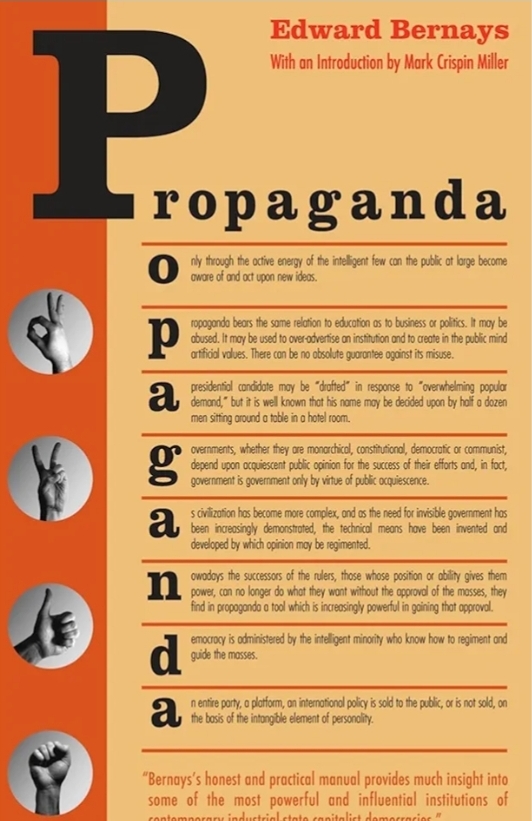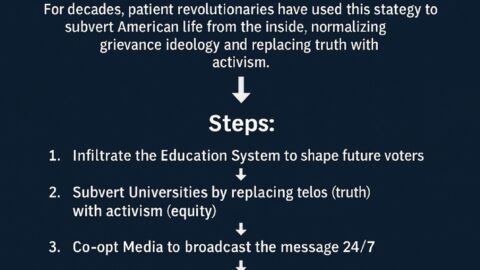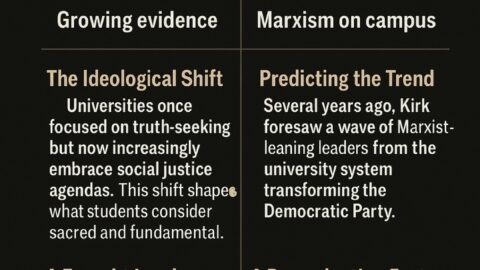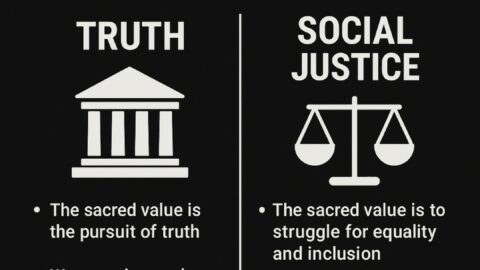Propaganda by Edward Bernays, published in 1928, is a seminal work that explores the mechanisms of influence and persuasion, particularly in the context of modern democratic societies. Bernays, often considered the father of public relations, outlines how mass communication and propaganda can be systematically used to shape public opinion and behavior. This book provides a comprehensive look at the role of propaganda in business, politics, and media, and its profound influence on society.
Key Themes and Concepts:
The Invisible Government:
- Bernays argues that a small group of individuals or organizations, which he refers to as the “invisible government,” orchestrates public opinion in modern society. These individuals are public relations experts, political strategists, advertisers, and corporate leaders who use propaganda to manage the collective mindset of the masses.
- He suggests that public opinion can be engineered by influencing key leaders and opinion-makers, rather than addressing the masses directly. This is a foundational concept in the study of public relations.
The Mechanisms of Propaganda:
- Bernays explains that propaganda is not inherently negative, but rather a neutral tool that can be used for either good or ill purposes, depending on the intentions behind it.
- He discusses the various techniques of propaganda, including emotional appeals, creating symbols, manipulating language, and the strategic use of mass media to achieve desired outcomes.
- According to Bernays, propaganda can influence everything from political elections to consumer choices, molding public consciousness in subtle but powerful ways.
Shaping Public Opinion in Democracy:
- One of the most controversial aspects of Bernays’ argument is his assertion that democratic societies require propaganda in order to function. He claims that the complexities of modern life make it impossible for individuals to make fully informed decisions on every issue, thus justifying the need for public relations experts to guide public opinion.
- He suggests that propaganda is a tool for elite control, ensuring that the interests of the ruling class or corporate entities are maintained. This viewpoint raises significant ethical questions about the manipulation of information in democratic systems.
The Use of Propaganda in Business and Advertising:
- Bernays discusses how propaganda is used extensively in advertising and marketing to create demand for products and services. By associating products with certain emotions, values, or symbols, businesses can influence consumer behavior on a large scale.
- He highlights examples from corporate America, where businesses used public relations techniques to shape their public image, influence legislation, and create a favorable environment for their growth.
Social Engineering and Public Relations:
- Bernays introduces the concept of “engineering consent”, which is the idea that public relations professionals can systematically create and guide public opinion in a desired direction. This concept is central to his broader vision of public relations as a scientific approach to communication.
- He suggests that leaders can direct social change by crafting messages that appeal to the emotions and subconscious desires of the masses.
Applications in Politics:
- Bernays emphasizes the role of propaganda in politics, where it is used to sell political candidates, shape policies, and rally public support. He argues that political campaigns are often driven more by emotional appeals and strategic messaging than by rational debate or factual accuracy.
- He also discusses the use of symbols, slogans, and emotional narratives in political propaganda, showing how these tools are used to mobilize the electorate and consolidate power.
Ethical Considerations:
- While Bernays acknowledges the ethical concerns surrounding the use of propaganda, he ultimately justifies its use as a necessary means of organizing modern society. He suggests that, in the hands of responsible leaders, propaganda can promote social good.
- However, critics argue that this viewpoint overlooks the potential for abuse and manipulation, particularly when propaganda serves the interests of powerful elites rather than the public.
Influence and Legacy:
- Propaganda has had a profound influence on the fields of public relations, advertising, and political communication. Bernays’ ideas laid the groundwork for modern strategies in media manipulation, branding, and political spin.
- His concept of the “invisible government” is especially relevant in discussions about the power of media conglomerates, corporate influence in politics, and the control of information in the digital age.
- The book remains a controversial yet crucial text for understanding how propaganda operates in modern society and how it continues to shape our perceptions and decisions in subtle ways.
Conclusion:
Edward Bernays’ Propaganda is a thought-provoking exploration of how influence and control are exercised in modern society. While his arguments have been both celebrated and critiqued, the book remains essential reading for anyone interested in the intersection of media, politics, and public relations. It raises important questions about the ethical use of propaganda and the balance between public relations and democracy.







